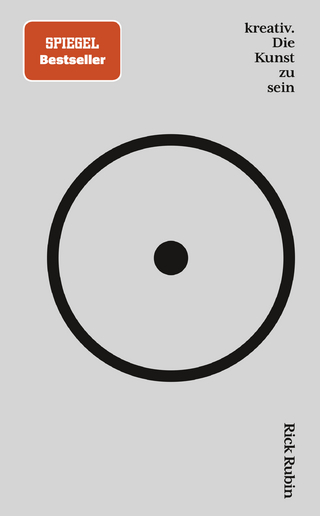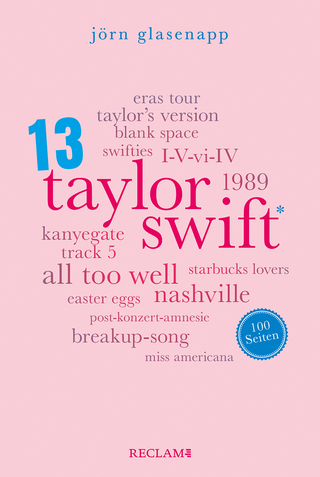
Popular Music and the Moving Image in Eastern Europe
Bloomsbury Academic USA (Verlag)
978-1-5013-3717-8 (ISBN)
With the fall of state socialism - and with it, the need for economically viable film and media industries - brought about an unprecedented upsurge of films utilizing popular music, and a greater recognition of popular cinema as a legitimate object of study. Popular Music and the Moving Image in Eastern Europe fills the gap and demonstrates why the popular music-cinema interface needs to be theorized with respect to the political, ideological, and social forces invested in popular culture.
Ewa Mazierska is Professor of Film Studies at the University of Central Lancashire, UK. She has published over twenty monographs and edited collections on film and popular music, including Popular Music in Eastern Europe: Breaking the Cold War Paradigm (2016), Relocating Popular Music (2015), co-edited with Georgina Gregory, From Self- Fulfillment to Survival of the Fittest: Work in European Cinema from the 1960s to the Present (2015), and European Cinema and Intertextuality: History, Memory, Politics (2011). Mazierska is the principal editor of the Studies in Eastern European Cinema journal. Zsolt Gyori is an Assistant Professor in the Department of British Studies at the University of Debrecen, Hungary. He has edited collections of essays in Hungarian on British cinema, on body, subjectivity, race and gender in post-communist Hungarian cinema and the connective structures of space, power and identity in Hungarian cinema. He is also the author of Films, Auteurs, Critical-Clinical Readings (2014).
Table of Contents
Introductions: Popular Music and the Moving Image in Eastern Europe
Ewa Mazierska (University of Central Lancashire, UK) and Zsolt Gyori (University of Debrecen, Hungary)
Chapter 1
1968 Leftist Utopianism in The Young Girls of Rochefort and Hot Summer
Evan Torner (University of Cincinnati, USA)
Chapter 2
Representing Modern Romania in the Musical of State Socialist Period Gabriela Filippi (I.L. Caragiale National University of Theatre and Film, Romania)
Chapter 3
Worlds That Never Were: Contemporary Eastern European Musical Comedies and the Memory of Socialism
Balázs Varga (Eötvös Loránd University, Hungary)
Chapter 4
Pop Music, Nostalgia and Melancholia in Dollybirds and Liza, the Fox Fairy
Hajnal Király (Insitute for Hungarian Literary and Cultural Studies, Eötvös Lóránd University, Hungary)
Chapter 5
When the Golden Kids Met the Bright Young Men and Women: Rebellion, Innovation and Cultural Tradition in the Czech 1960s Music Film
Jonathan Owen (Courtauld Institute of Art, UK)
Chapter 6
‘Music Isn’t Music, Words Aren’t Words’: Underground Music in the Hungarian Cinema of the New Sensibility
Zsolt Gyori
Chapter 7
Socialist Night Fever: Yugoslav Disco on Film and Television
Marko Zubak (Croatian Institute of History, Croatia)
Chapter 8
Disco Polo and Techno according to Maria Zmarz-Koczanowicz
Ewa Mazierska
Chapter 9
Musical Variations in Karpo Godina’s Alternative Cinema
Andrej Šprah (Slovenian Cinematheque, Slovenia)
Chapter 10
Polish Music Videos: Between Parochialism and Universalism
Ewa Mazierska
Chapter 11
‘She Stole It from Beyoncé!’ – Transnational Borrowing in Bulgarian Pop-Folk Music Videos and Audience Reaction to the Practice
Maya Nedyalkova (Oxford Brookes University, UK)
Chapter 12
Postsocialist Social Reality in Hungarian Rap Music Videos
Anna Batori (Babes-Bolyai University, Cluj-Napoca, Romania)
List of Contributors
Index
| Erscheinungsdatum | 28.12.2018 |
|---|---|
| Zusatzinfo | 1 bw illus |
| Verlagsort | New York |
| Sprache | englisch |
| Maße | 152 x 229 mm |
| Gewicht | 517 g |
| Themenwelt | Kunst / Musik / Theater ► Film / TV |
| Kunst / Musik / Theater ► Musik ► Pop / Rock | |
| ISBN-10 | 1-5013-3717-3 / 1501337173 |
| ISBN-13 | 978-1-5013-3717-8 / 9781501337178 |
| Zustand | Neuware |
| Haben Sie eine Frage zum Produkt? |
aus dem Bereich


